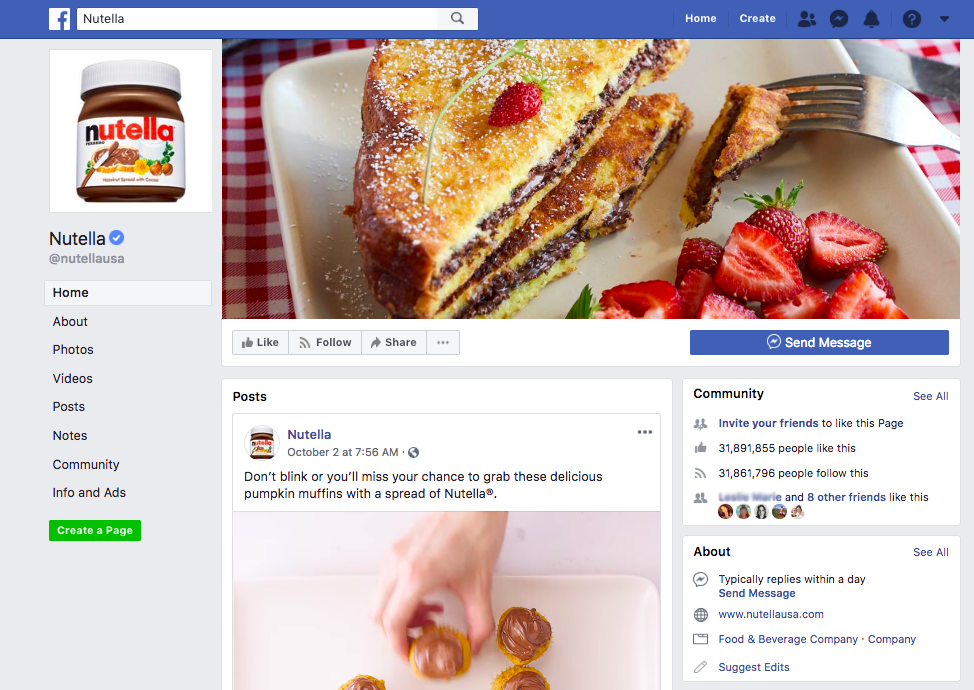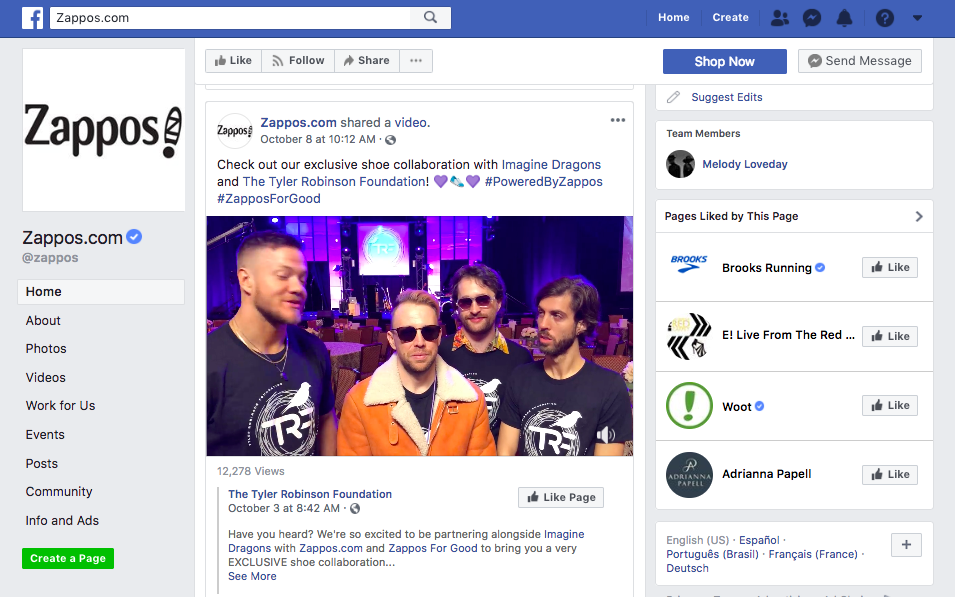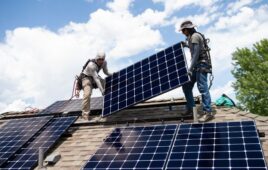Digital solar marketing is one of the most powerful ways that solar contracting companies can connect with new leads. But with so many possible avenues for digital marketing it can be hard to know where to start. In this Aurora Solar series, we discuss how contractors can make the best use of a variety of marketing options in order to craft their own digital solar marketing strategy that will help them connect with new customers.
In addition to introducing why digital solar marketing matters, this series has discussed how to create an effective solar website, how to choose the right keywords and optimize your site for Google search. Social media is another key tool for digital solar marketing that allows solar companies to connect organically with customers by building trust and brand awareness.
In today’s article we explore how solar contractors can make the most of Facebook marketing. In subsequent articles, we’ll delve into other social media platforms.
Why use Facebook marketing for solar?
Facebook is the most popular social media platform for marketers. 41% of small businesses in the U.S. use it as part of their online marketing strategy and the platform has 1.18 billion daily active users. Undoubtedly, solar prospects are using it, as well as many solar companies. However, Facebook marketing tends to be underutilized by solar firms so those that approach it effectively can gain a competitive edge.
Facebook has unique features that make it well suited for effective solar marketing. Fans can “like” a business and see company updates in their News Feed. Companies can also offer support to customers through Facebook messages and collect insights from their audience based on their responses to posted content. (Facebook ads are also a powerful feature but are outside the scope of this article.) Facebook is ideal for developing a marketing campaign that positions a solar company as a source of engaging updates and valuable information.
Facebook marketing starts with a well-designed business page
There are a number of tactics that strengthen the effectiveness of a business page. When customizing the business profile use jargon-free, non-sales language to convey experience and trustworthiness to those who may not know a lot about solar. Since visitors are most likely to scan the About section first include all the vital information: address, contact information, website (with URL), business hours, and products.
Don’t forget to add a clear call-to-action button at the top of the page. This buttoncan be customized (for example, “Book Service,” “Download App,” or “Learn More”). Additionally, contractors should be careful to choose the appropriate business category. If a solar contractor has a local or regional business with a showroom, they may consider selecting “Local Business,” but if they aren’t expecting walk-in traffic they can opt for “Companies & Organizations.”
Visual impression is just as important. Use recognizable, high-quality images for the profile photo, thumbnails, and top of the page. Aim for a consistent look and messaging for the cover photo, the pinned post (the post kept at the top of the feed), and the profile call-to-action. The optimal size for the cover photo is 851×315 pixels and 160×160 pixels for the profile photo. Varying the medium of your visuals is effective as well. Try graphics, videos, and memes (both visual and text), as well as photos or illustrations of installations, happy customers and motivated employees.
Finally, just as you can optimize your website for search engines, a company Facebook page can be optimized to rank well in Google and Facebook searches. Choose a descriptive and memorable username (or URL) that includes the business name or conveys the main brand message. Sprinkle search keywords prospects will be using in the About section.

Nutella’s Facebook page offers an example of a page with good use of imagery and complete company information.
Use content to engage
The goal with Facebook marketing is to create an ongoing conversation with prospects and existing customers. Keep it friendly and personable and provide timely updates and quick responses to private messages and comments (particularly negative ones). Create trust and brand awareness with people by getting involved in conversations about trending topics in solar and renewables. “Use your Facebook page for what it’s meant to be: a social site. Get to know your customers’ needs by hosting polls and responding to reviews,” states Katie Campbell, social media manager at Fundera.
More engagement with fans means more exposure for a business since the company will appear on their Facebook feeds and Facebook’s algorithm leans toward posts and pages that create engagement. Another option is interacting with existing Facebook Groups or creating a new one to engage prospects and reach new audiences.
The actual content companies post should be original and compelling for the target audience. Address their particular concerns or questions about solar, whether they be rising energy bills, dependence on fossil fuels, or the suitability of their business for solar. Offer information about solar’s affordability and benefits on the page, but avoid sales-heavy language as it tends to turn people off. Demonstrating expertise and trustworthiness should be the intention.

Zappos posts a variety of engaging content on their Facebook page, such as this post about an exclusive collaboration with a band.
The variety of content is also important. Choose the most unique, eye-catching text and image to pin at the top of the page and change it periodically. Don’t be afraid to use (non-offensive) humor to keep things entertaining. Interesting images, links, and share-worthy videos help engage prospects like 360-degree videos or funny comic strips. Social media is built on a culture of sharing, so share news from other companies and organizations in the solar and renewable energy sectors.
Leverage company resources. Repurpose content from the company website like educational information, company news, and case studies. Opt for the most interesting format: a well-designed infographic about exciting new tech piques interest far more effectively than a dry research paper excerpt. Go behind the scenes to share about employees or projects that show off top quality services and products. Some posts can be directly geared towards lead generation, such as links to landing pages for special offers, videos, high conversion blog posts, or upcoming webinars.
Include posts that generate engagement from your supporters. Host recurring (i.e. weekly) engagement campaigns, like a quick tip series, fan opinion days, or coupon campaigns, create consistency and invite interaction. Giveaways, promotions, and events are other good options. In 2011, SunPower used Facebook to launch an online interactive solar-themed game to give out prizes like gadgets, gift cards, and an entire SunPower solar system. Reward fans with exclusive perks like discounts and special services, and tap the enthusiasm of satisfied customers by inviting them to like the page and post photos and comments about their solar system or ROI.
To strike a balance between maintaining a social connection and flooding people with updates, keep posts consistent and well-timed. Aim to post a minimum of once a day, no more than a few times a day (5-10 posts a week works). Posting between 1-4 p.m. is shown to be ideal for best click through and share rates.
Facebook has analytical tools called Page and Audience Insights that take the guesswork out of content creation. They can help a company analyze the performance of both specific posts and the page as a whole. Companies can track likes and reactions, reach, pageviews, and other metrics for particular posts. The data show which types of content resonate with an audience, get the most response, and have the most longevity.
Tapping the power of Facebook through engaging design and content is central to an effective digital solar marketing campaign. The social proof offered by a successful Facebook page engages and persuades in a unique way and will help turn fans’ friends and family into a company’s next customers.
About Aurora’s digital solar marketing series
This article is part of an ongoing series from Aurora Solar design and sales software, providing a guide for solar companies to develop a cohesive digital solar marketing strategy to connect with more customers. We explain the value offered by different digital marketing options and highlight concrete strategies to make the most of each.
- How to use retargeting to increase solar sales conversions
- How to use Google Ads to drive traffic to your solar website
- How to harness Instagram’s visual appeal for solar marketing
- How solar contractors can make the most of Twitter
- Optimize your solar company’s presence on LinkedIn
- Effective Facebook marketing for solar contractors
- Search engine optimization (SEO) for solar contractors: Best practices
- Search Engine Optimization (SEO) for solar contractors: Choosing the right keywords
- Make your solar website the foundation for effective digital solar marketing
- Five ways digital solar marketing can grow your business





Hi Sara! My name is Cate and I work for a start up in Kalamazoo Michigan called Climax Solar. I am somewhat new to the marketing world but have recently been given a major opportunity to use our Facebook for more marketing. To be honest, I have no clue what I’m doing. I would really like to pick your brain so I can show my CEO that I am a reliable employee who has the capability to grow. Please let me know if this is even possible. I would greatly appreciate it! Thanks!